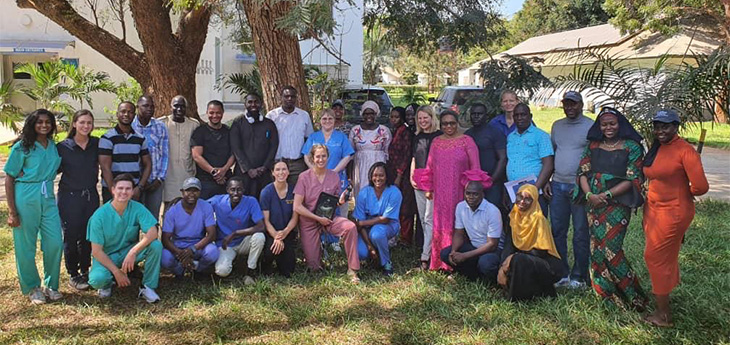In a bid to enhance diagnostic capabilities and improve access to care in The Gambia, a team from the UC Davis Health Department of Emergency Medicine is training local providers to deliver health care using portable ultrasound equipment. The initiative, led by Christine McBeth and her team, focuses on diagnosing heart and lung conditions, offering hands-on simulations with handheld ultrasound probes.
Point of Care Ultrasound (POCUS) is the central diagnostic tool employed, known for its portability, making it increasingly essential in hard-to-reach communities. POCUS allows providers to assess patients wherever they are, aiding in the diagnosis and treatment of critically ill patients without the need for a clinic or hospital setting.
“The Gambia is a perfect environment for portable ultrasounds to make a real difference in patient care and to save lives,” said Christine McBeth, assistant professor of Emergency Medicine at UC Davis Health and course director of the training program. “These reliable tools provide real-time information on how to best treat patients and allow us to monitor a patient’s response to their treatment.”
The training program, funded by the Department of Emergency Medicine, the London School of Hygiene and Tropical Medicine, and the Sustainable Cardiovascular Health Equity Development Alliance (SCHEDA) and Medical Research Council Unit, included a week of classroom training with interactive team-based learning activities. SCHEDA donated four handheld ultrasound probes along with iPads to support the initiative.
Following the classroom training, the UC Davis team led local providers in hands-on simulations with real-life patient scenarios. The goal is to equip local health care professionals to use POCUS tools effectively to provide care to acutely ill patients with respiratory and cardiac conditions.
The Gambia, despite making strides in health care access and delivery, faces challenges such as a scarcity and unequal distribution of health care workers, particularly in rural areas. The training program aims to address these disparities by enhancing the capacity of health care providers to provide precise and timely medical interventions to patients in these underserved communities.
The visit by the UC Davis Health team aligns with UC Davis’s efforts in global health, particularly through the establishment of a new Center for Global Health. This interdisciplinary approach, known as One Health, recognizes the interconnectedness of people, animals, and the environment to improve the well-being of all. Through ongoing collaborations, UC Davis Health aims to train conscientious health care practitioners and improve health and equity for all patients globally.










